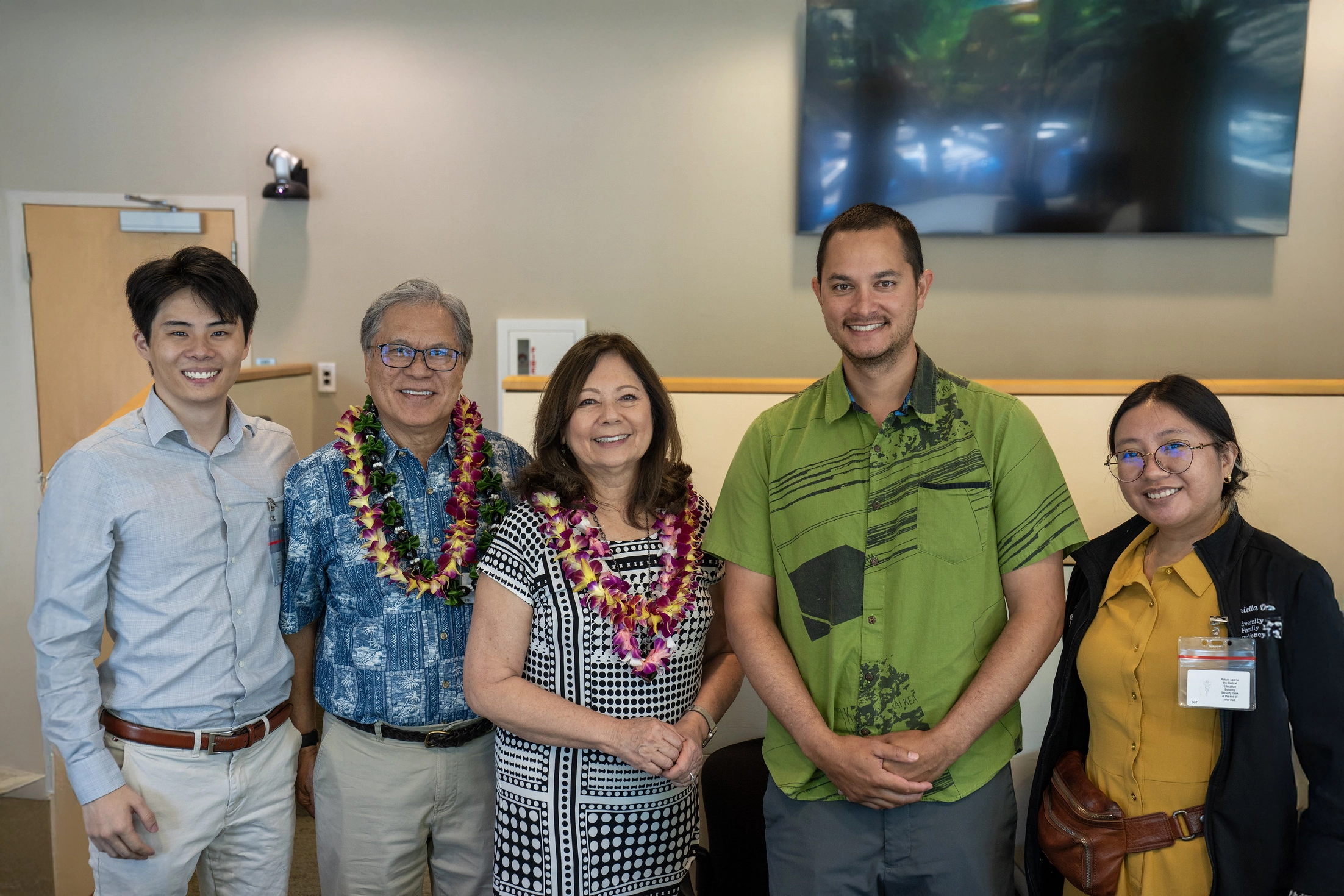
Hawaiʻi’s aging population is growing larger, outpacing that of the United States, as a whole. More than 21% of our population is aged 65 and older, compared to under 18% across the nation, according to the U.S. Census Bureau. The numbers underscore the need for specialized healthcare for our kūpuna, especially here in Hawaiʻi. Recognizing this critical need, Allen and Anne Abaya established two pilot programs at the John A. Burns School of Medicine in 2023 to support young doctors and nursing practitioners committed to practicing geriatrics.
Through the Nohara-Abaya Geriatrics Fellowship Award, the couple’s efforts have already made a profound impact on the future of geriatric care for Hawaiʻi’s elderly, through the hands of the award recipients and the communities that they serve.
“In Hawaiʻi, our kūpuna mean a lot to us and being able to care for them is a way of us being able to give back to our ʻohana and to our community. It's a privilege to take care of our kūpuna,” said Dr. Trace “Kaimana” Kalei (JABSOM MD 2020).
Having grown up in Hawai’i, Kalei acknowledges the financial magnitude of the award. “It costs to train here in Hawaiʻi– through medical school, (family medicine) residency and now, fellowship, to be able to provide this (geriatric) care. Itʻs a very valuable gift and we’re very grateful for it. It will go to help support many other folks down the road,” said Kalei.
Serving the elderly population in Hawaiʻi has been a longtime goal of Dr. Daniella Orias (JABSOM MD 2021). “I, personally, have always loved geriatrics. It’s always been a huge part of my passion and so, even through my family medicine (residency) training, I’ve always held a really soft spot for it.”
For Dr. Maxwell Shen, geriatric medicine is a newfound passion, shaped by his experiences upon completing his internal medicine residency training at Tripler Army Medical Center. “What I really loved with internal medicine is, of course, the inpatient setting. But also, one thing I realized was a lot of the patients that I took care of were the elderly population,” said Shen. “So that’s where my interest grew, as well as my motivation blossomed into taking care of the elderly population.”
Mentorship played a critical role in that journey. “I was really fortunate enough to have a mentor who also was trained in geriatrics, so it was really eye-opening to watch him work, as well as giving me different types of pearls. That really kind of solidified my dedication,” Shen said.
Whether the spark for caring for the senior members of the community is new or old, these fellows share a strong commitment to providing excellent geriatric care. They also recognize the vision behind the gift.
“As we look forward, the geriatric population is only going to get larger and the number of folks going into this field is actually declining. And so you’re going to see in the future, a greater gap in the care that is being provided to elderly folks. This (program) will help to provide support for that,” Kalei said.
Echoing the appreciation shared by the group, Orias said, “It’s a really tremendous honor that they’ve been providing this for us, so that we can keep trying to help out with our geriatric community and our kūpuna.”
The award, now in its second year, continues to support physicians committed to improving geriatric care. For the Abaya family, hearing the fellowsʻ experiences and observing the dedication of the new recipients has reinforced their commitment to the cause.
“It makes you feel that what we are doing is worthwhile, you know?” said Anne. “As time goes on… we’re getting more and more passionate about it because we see more examples of where the need is there.” The couple noted the ongoing challenges in attracting healthcare professionals to geriatrics and expressed hope that their support could help address the shortage.
“We figure, anything we can do to help get those numbers up (those interested in geriatric care), it feels good,” Anne said as she looked over to her husband, who nodded in agreement.
“Yeah, it feels great,” Allen said.